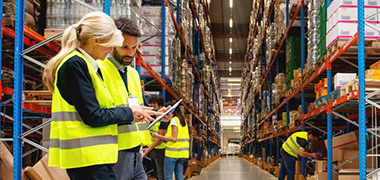
This role has a low level of AI exposure. Core skills such as adaptability, social intelligence, and complex physical tasks remain beyond the capabilities of current AI.
Explore all careersA Metal Worker fabricates parts from metals like steel and aluminium, cutting, shaping, assembling, and installing them according to specifications.
Get qualified to work as a Metal Worker with a course recognised across Australia. Speak to a training provider to learn more.



In Australia, a full time Metal Worker generally earns $1,530 per week ($79,560 annual salary) before tax. This is a median figure for full-time employees and should be considered a guide only. As you gain more experience you can expect a potentially higher salary than people who are new to the industry.
 Courses.com.au Team
Courses.com.au Team
The number of people working in this industry has fallen in recent years. There are currently 5,500 people employed as a Metal Worker in Australia compared to 8,400 five years ago. Metal Workers may find work across all regions of Australia.
Source: Australian Government Labour Market Insights
 Courses.com.au Team
Courses.com.au Team
To become a Metal Worker, consider enrolling in a Certificate III in Engineering – Fabrication Trade where you’ll learn a range of mechanical cutting, metal fabrication and welding processes. You could also consider a Certificate III in Engineering – Mechanical Trade or a Certificate IV in Engineering (Foundry Technology).
 Courses.com.au Team
Courses.com.au Team
Browse occupations related to Metal Worker



Are you considering a career in metalworking? Hobart offers a range of excellent Metal Worker courses in Hobart, designed to kick-start your journey in this dynamic field. Whether you're a novice with no prior experience, or looking to expand your skill set, these vocational education and training (VET) courses can equip you with the skills you need to succeed in various job roles within the industry.
The three available beginner courses include the Certificate III in Engineering - Fabrication Trade MEM31922, perfect for those keen on fabrication techniques; the Certificate III in Engineering - Mechanical Trade MEM30219, which focuses on mechanical engineering skills; and the Certificate III in Engineering - Fabrication Trade (Apprenticeship) MEM31922, ideal for those wanting practical, hands-on experience through an apprenticeship.
Hobart's unique geographic location provides a rich environment for trades and metalworking, making it an ideal place for aspiring metal workers to learn and grow. The courses available are recognised by industry bodies and delivered by reputable training providers, ensuring you receive quality education that is relevant to today's job market. By enrolling in a trades course, you can tap into the local economy's demand for skilled professionals.
In addition to the practical skills you'll acquire, these courses in metalworking open doors to various career opportunities within Hobart and beyond. Graduates can expect to find work in diverse sectors, from manufacturing to construction. To explore more about this field, you can check out additional courses within metalworking and enhance your knowledge and employability.